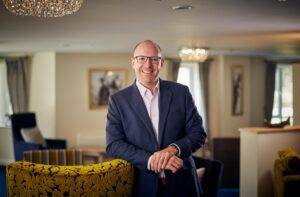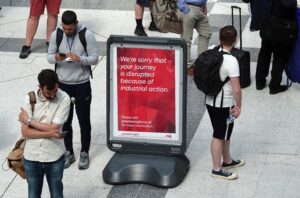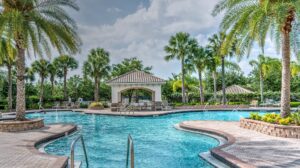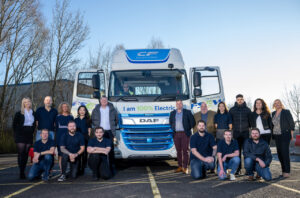Secrets of Success: Dr Ed Gladman, CEO Adlington Retirement Living

<?xml encoding=”utf-8″ ?????????>
More than a retirement property, Dr Ed Gladman ensures that Adlington Retirement Living builds communities that centre around happiness, safety and physical wellbeing. He shares the journey of the family owned and run company with Business Matters …
What is the main problem you solve for your customers?
Our retirement communities are designed to empower the older generation to live a long, happy and healthy life in a safe and secure environment with activities, communal facilities and beautiful private gardens. They’re about much more than the bricks and mortar of our apartments.
Although we focus on the quality of our facilities, we know that the most important things that make our customers really feel at home, are having a good circle of friends, connections with like-minded neighbours and a sense of belonging.
As we all get older, many people start to struggle with aspects of their family home such as managing the stairs, organising repairs and maintenance, or staying on top of garden maintenance. I think a lot of people also want to future-proof their retirement. Many of our homeowners are fit and healthy but feel reassured knowing that help is on hand if they ever need it, 24 hours a day, 365 days a year. It also gives peace of mind to their families.
When required, we can put in place optional personal care packages for everything from short-term support after an operation, to more regular, long-term tailored personal care. Our on-site teams work with a local care partner to find the best solution to suit each individual.
What made you move into the business?
Prior to joining Adlington Retirement Living in 2017, I worked in the NHS as a hospital doctor specialising in anaesthetics. I’d never planned to join the family business and wanted to do something different, unrelated to property, which is why I went into medicine.
Working as a doctor was in many ways a wonderful career. When it goes well you can have such a profoundly positive impact upon someone’s life. I was however beginning to find the NHS a dehumanising environment in which to work and decided that a change was needed.
Joining the family business was too good an opportunity to overlook. It afforded me the chance to work with my dad with whom I have a great relationship. It also gives me a high degree of autonomy and the ability to change things where I see improvements can be made.
Fundamentally though, the main reason for joining Adlington was that I see the development of Integrated Retirement Communities as a life-changing product for our customers. The huge difference it can make to a homeowner’s life is a great reason to go to work in the morning.
What are your brand values?
Our core brand values are to be:
COLLABORATIVE: Collaboration is at the heart of our organisation. For our customers and for their families. With our business partners and for all our employees.
EMPATHETIC: We care deeply about the challenges associated with growing old and strive to provide a safe, secure and happy environment for all our homeowners.
PROGRESSIVE: We constantly refine, adapt and invest in our build and interior design solutions to deliver high quality homes and create welcoming retirement communities.
OPEN: Building on the family values of our founding partners, we promote a culture of openness and a considerate work ethic, through transparent communication at every level.
Is team culture integral to your business?
Organisational culture is integral to the success of any business. We have always been a family business and at the heart of our culture is trying to be fair and decent to our customers and team. We have incredibly low staff turnover because we pay well and give our staff a high degree of autonomy and ownership of their work.
The challenge we face is that we are now approaching a headcount of 300 and this makes keeping the feel of a small family business a huge challenge, particularly with many of the sales, operational and construction teams working nationwide.
Having the senior management team fully bought into the core values that define our business helps us to continue to provide an interesting and worthwhile place to work for our team.
If team culture is integral to your business, what do you do to go the extra mile to to show your team you appreciate them?
Fundamentally we do our utmost to treat everyone fairly and as we would wish to be treated. I think one of the key factors is that we do not have an HR department. HR decisions are made by the board directors and often by me, to ensure that all situations are looked at fairly and holistically not simply by following a policy.
We have an incredibly flexible working policy for our office-based staff and do our utmost to be flexible in allowing people to work in a manner that fits their lives. We also pay the team well.
An often-overlooked element of culture is paying suppliers and subcontractors on time. Some in the construction industry have a poor reputation for not paying suppliers on time. We pay on time and don’t use retentions with our subcontractors. This means we have decent relationships with our supply chain, and we can ask them for a favour when required, as they can of us.
We have a well defined wellbeing program that ensures a happy and healthy team. As part of that, we have several fully trained Mental Health First Aiders and a qualified in-house trainer delivering regular Mental Health Awareness courses.
Regular funded social events are arranged together with the promotion of healthy living activities such as a cycle to work initiative, charity fun runs, healthy eating club and walking competitions.
Our in-house Management Company Adlington Management Services (AMS) has a very comprehensive and in-depth training programme and each of our retirement community’s links with local authorities to provide mental capacity and safeguarding training for the benefit of our homeowners.
In terms of your messaging do you think you talk directly to your consumers in a clear fashion?
Education on Integrated Retirement Communities (IRCs) is at the forefront of our media interviews and marketing campaigns so that older people understand the choice of housing available to them. We regularly interview homeowners and share their stories through our own channels and the wider media.
IRCs are a relatively new concept in the UK, unlike the US, Canada and New Zealand, where they are well established. In the UK, there’s confusion around the difference between an IRC and a care home. Sadly, people often think of an ‘old people’s home’ when they imagine a retirement community.
Many people live in accommodation which becomes increasingly less appropriate for them in later life, as their health and social needs change. This often leads to a crisis point where they are forced to move because home is no longer safe, following a fall or illness.
IRCs offer people a way to retain their independence for as long as possible, choosing where they want to live with the safety net of care options being readily available if they are needed in the future. They also keep older people engaged with wider society which is key to tackling loneliness and isolation in later years.
Our advertising campaigns are clear and concise, with full transparency of information on our website. As members of the Associated Retirement Community Operators (ARCO), which is a body representing operators of IRCs, we undertake a thorough annual review of all our marketing communications, as well as the service levels at each of our communities.
What’s your take on inflation and interest rates – are you going to pass that on to your customers or let your margins take a hit and reward customer loyalty in these tougher times?
The current economic conditions are very challenging for the real estate sector. Our costs to build and borrow money have both risen steeply and we are currently in a tricky sales environment. Thankfully our product is close to unique in the UK and genuinely life changing for our homeowners and as such demand remains strong.
We have very much shared the pain with our potential customers. We have increased prices and accepted a lower margin on the development. However, as a business our focus is very much on the long income generated so this hasn’t hugely impacted our business plan.
Is tech playing a much larger part in your day-to-day running of your company?
Our design and development team use the leading software in the industry with all projects designed in REVIT. It’s fantastic and makes it much easier for the Senior Management team to review each new development.
However, on the operational side we are relatively low tech. We believe in first class hospitality and customer service. I am approached by tech companies constantly however what they are offering is usually expensive and not of huge value and would ultimately drive-up costs too much.
Our customers are tech savvy and all own smartphones, iPads etc. so the last thing they want is us providing an added layer of complexity with inferior tech. As a community develops, WhatsApp groups, Facebook communities etc. naturally develop as they do in any new group. The tech available to the general public has never been better and our communities benefit hugely from this.
What is your attitude to your competitors?
Interestingly, we rarely encounter significant competition. There are several really high-quality IRC developers in the UK. However, there are far more towns to go at than there are developers. On the odd occasion where we have local competition it can actually be beneficial. When a strong competitor enters the market, they often educate the local population about retirement communities, making our sales process easier. We at Adlington embrace healthy competition as it contributes to market awareness and ultimately facilitates sales.
The growth potential in this sector is immense. We are driven by the positive impact we can create. Moreover, the sector offers significant financial opportunities, making it a lucrative venture. With such a combination of social importance, profitability, and tremendous growth potential, we are excited about the future possibilities.
As members of ARCO, I maintain good relationships with the leaders of our competitors as we are of the view a collegiate sector is far preferable to an adversarial operating environment as experienced in so many sectors.
Do you have any advice for anyone starting out in business?
I never set out to be a businessperson and indeed by becoming a doctor took active steps against it. However, circumstances change, and I have found myself in a wonderful role as CEO of Adlington.
In my view the most important thing is to find something that is personally fulfilling to you. We are all motivated by hugely different things, so the key is to find an industry that ticks the boxes you need it to tick to have a happy and worthwhile career.
It can be a lonely and pressured place to be as the lead decision maker of the business. What do you do to relax, recharge and hone your focus?
I have three small children who keep me busy. Whether they relax, recharge and hone my focus is debatable.
What is your company’s eco strategy?
The UK has a huge shortfall of housing and as such new homes need to be built. However, construction as an industry is inherently poor from an environmental perspective. This is a dichotomy with which I am constantly wrestling.
The positive environmental impact of our communities is that our homeowners almost all move from a home with at least two, often three or four unused bedrooms. They then move into a much smaller home which is well built, well insulated and much more efficient to run. This process frees up a large property for a family to move into and provides our homeowners with a beautiful home and community.
We also do an excellent job of looking after our homeowners and as such their hospital visits, GP appointments etc., decrease. Healthcare has an enormous carbon footprint so by decreasing its use we also help.
Finally living as part of a community is much more efficient. For example, there is a chef who cooks in the restaurant, shared trips into town, carers don’t have to drive between jobs. These benefits also drastically decrease the carbon footprint generated by our homeowners.
What three things do you hope to have in place within the next 12 months?
The three things I hope to have place in the next 12 months are land, land and land. The land and planning environment is incredibly challenging, and we are on the lookout for more sites.
We will look anywhere in England and need to be able to build retirement communities with 60 plus apartments on the site so if you’ve got good quality land to sell in affluent market towns or areas of cities please get in touch.




